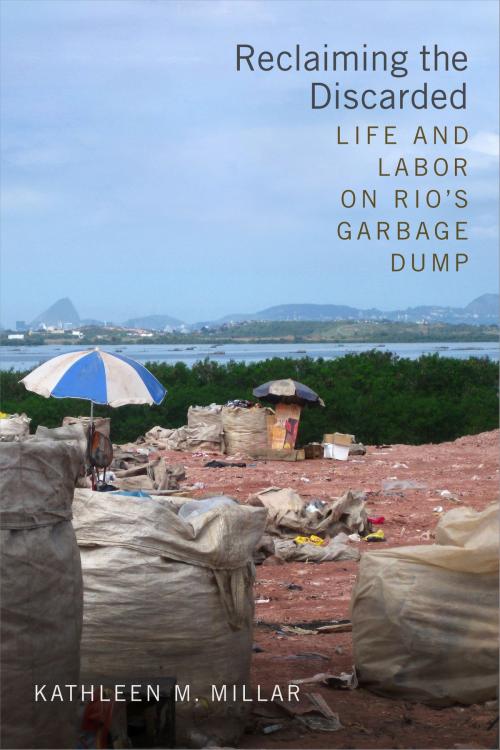Reclaiming the Discarded
Life and Labor on Rio's Garbage Dump
Nonfiction, History, Americas, South America, Social & Cultural Studies, Social Science, Sociology, Urban, Anthropology| Author: | Kathleen M. Millar | ISBN: | 9780822372073 |
| Publisher: | Duke University Press | Publication: | January 19, 2018 |
| Imprint: | Duke University Press Books | Language: | English |
| Author: | Kathleen M. Millar |
| ISBN: | 9780822372073 |
| Publisher: | Duke University Press |
| Publication: | January 19, 2018 |
| Imprint: | Duke University Press Books |
| Language: | English |
In Reclaiming the Discarded Kathleen M. Millar offers an evocative ethnography of Jardim Gramacho, a sprawling garbage dump on the outskirts of Rio de Janeiro, where roughly two thousand self-employed workers known as catadores collect recyclable materials. While the figure of the scavenger sifting through garbage seems iconic of wageless life today, Millar shows how the work of reclaiming recyclables is more than a survival strategy or an informal labor practice. Rather, the stories of catadores show how this work is inseparable from conceptions of the good life and from human struggles to realize these visions within precarious conditions of urban poverty. By approaching the work of catadores as highly generative, Millar calls into question the category of informality, common conceptions of garbage, and the continued normativity of wage labor. In so doing, she illuminates how waste lies at the heart of relations of inequality and projects of social transformation.
In Reclaiming the Discarded Kathleen M. Millar offers an evocative ethnography of Jardim Gramacho, a sprawling garbage dump on the outskirts of Rio de Janeiro, where roughly two thousand self-employed workers known as catadores collect recyclable materials. While the figure of the scavenger sifting through garbage seems iconic of wageless life today, Millar shows how the work of reclaiming recyclables is more than a survival strategy or an informal labor practice. Rather, the stories of catadores show how this work is inseparable from conceptions of the good life and from human struggles to realize these visions within precarious conditions of urban poverty. By approaching the work of catadores as highly generative, Millar calls into question the category of informality, common conceptions of garbage, and the continued normativity of wage labor. In so doing, she illuminates how waste lies at the heart of relations of inequality and projects of social transformation.















